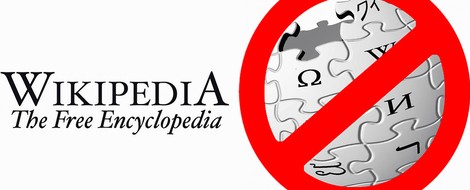Your podcast discovery platform
Curious minds select the most fascinating podcasts from around the world. Discover hand-piqd audio recommendations on your favorite topics.

piqer for: Global finds Globalization and politics Technology and society
Turkish journalist, blogger and media expert. Writes regular columns for The Arab Weekly and contributes to Süddeutsche Zeitung, El Pais and the Guardian. An European Press Prize Laureate for 'excellence in journalism' in 2014, Baydar was awarded the prestigious 'Journalistenpreis' in Germany by Südosteuropa Foundation in February 2018.
Why The Turkish Government Declared War On Wikipedia
For long eclipsed by the 'prohibition culture', the Turkish government's most recent ban of access to Wikipedia.org nationwide, blocking more than 5.4 million articles in 296 languages including the Turkish edition, brings the digital censorship in the country to a new level.
Unlike Turkey’s earlier bans on social media companies and new sites that led to blocking content from Turkish internet users, the Wikipedia ban also aims to force the digital encyclopedia into deleting some English language articles that, the government claims, are 'damaging Turkey’s international image'.
The ban hit the Turkish users the most, with about 5 million daily page-views to the Turkish edition plummeting by 80 percent. According to Wikipedia statistics, 88 percent of views to the Turkish Wikipedia originated from Turkey, indicating that now only a small minority of Turkish Wikipedia readers are able to access Wikipedia by using censorship circumvention tools such VPNs or the Tor anonymity network.
Here, Efe Kerem Sözeri — a scholar from Vrije University in the Netherlands and top expert monitor on Turkey's escalating internet prohibiton — explains in detail what this controversy is all about and how it can set a dangerous precedent globally, since the target is the very encyclopedic information itself.
Stay up to date – with a newsletter from your channel on Technology and society.
